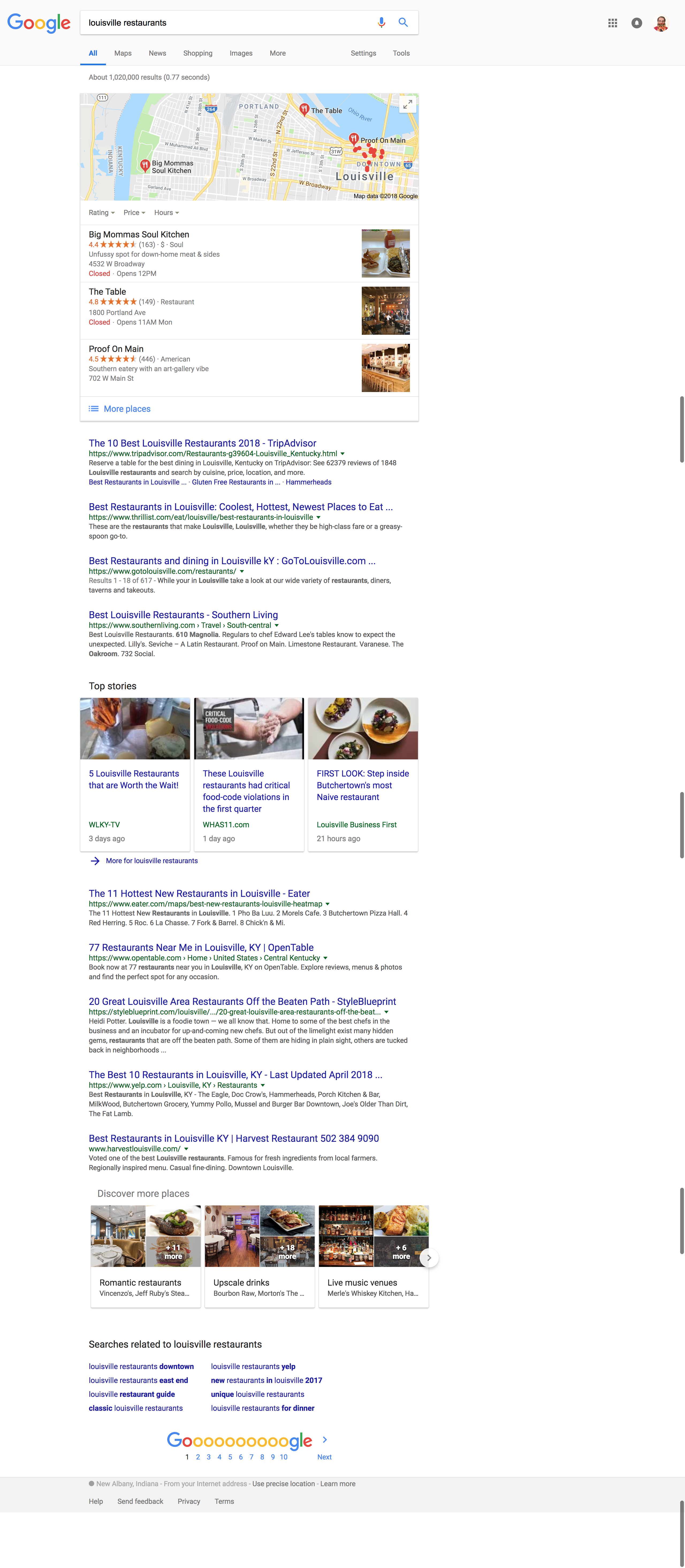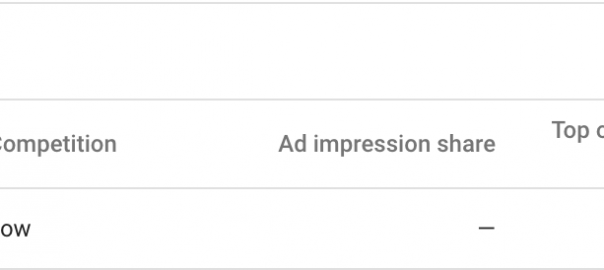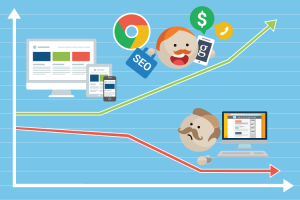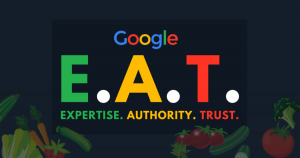— May 9, 2018
I remember the days when there was such an obsession with getting on page one of the search engine results page (SERP) for Google. I’m actually being a little sarcastic, but I digress. If you are losing sleep about your ranking on Google for that one single term that isn’t a topic or makes sense in a sentence structure, I hope this post helps you sleep better. So let’s focus on search visibility with SEO strategy. Not ranking at the top of page one on Google.
Search, SEO Strategy
You can’t have the strategy for a keyword like Louisville SEO, or SEO Louisville. Typical customers that need SEO services are not searching with these terms exclusively. Keyword research shows that this term is search for 320 times per month. That’s both unique searches and people searching again. That’s not useful information to determine who is looking. And not a good use of money for ads since it’s pretty low regardless of there being a cost at $ 24.00 at the high rage for bidding.
 Keyword Relevance for SEO Louisville
Keyword Relevance for SEO Louisville
Most of the time it’s people who are SEO providers competing against other SEO service providers, not business owners aware of SEO and need it. A more realistic search term is SEO Consultant Louisville, KY or SEO Agency Louisville, KY. With the market city at the end of the term for local search results. Before you assume that people are searching for something, hire an SEO expert to do the research. You will be astonished at the results and save thousands of dollars in wasted time and ads.
Topic, Not Keywords
Competition in the market of getting found on the search engine is intense. So all websites are under constant change and reconfiguration in the background. With the event of Google Hummingbird a couple of years ago, people have gotten comfortable with asking the search engine questions. And not entering a keyword in like I mentioned above about SEO. In 2016 Google launched RankBrain a algorithm update designed to understand the context of people search queries. This shift moves past simple keywords, and towards topics that potential customers are looking for answer about. Now you have to have quality content on a quality and usable website. Otherwise, you won’t get higher visibility.
Device And Location
So let’s look at how others might search using a simple search query like Louisville Restaurants. This query is a keyword focused model of search. It’s not topic related like above and it’s completely local as you’ll find a list of nearby restaurants listings with a map and other information. Google wants to understand your “intentions” when giving you a result. If on a laptop you’ll get what is below. If on mobile you can clearly see the difference. This changes depending on your location as Google assumes you are looking to eat soon, so it’s giving you what is nearby first. Which is why this post is titled the way it is.
 Louisville restaurants Google Search
Louisville restaurants Google Search
This doesn’t mean you need multiple brick and mortar locations to nail down the market. That’s ridiculous and obviously not cost effective. There is a move underway since 2013 for contextual searching not web search. Location plays a part, but you have to consider who your customer is, not who you want them to be as a part of your search strategy. No one looking for a quick bite is going to travel far to do so. Unless they have heard about a deal or referral from a friend. You can’t beat local nearby results without thinking about AdWords. But you can market and advertise to raise awareness and gain visibility on the SERP by getting good reviews, and having a awesome PR and social strategy.
Orphaned Content And Cornerstone Content
Topics are clusters on your site if you are blogging and have solid website visits. This creates a problem for you if your content is not internally linked correctly. Let’s say you have two posts on your blog about cats and one about cakes. internally linking to the cakes article makes no sense. It also doesn’t make sense to Google. If the cake article doesn’t have both a internal link from another article to it, and one going to another relevant one. Then that’s considered orphaned content. Internal linking makes for stronger web pages and improves search visibility.
Cornerstone content is another animal that’s important, but should not be abused. Cornerstone content is an article that is a pillar page (or post) on your site that impacts other articles or pages. It’s probably a post or page that you see new users arrive at via a search, then click thru your site to other related articles or pages. Again, treat this lightly and do not abuse it. If you label everything Cornerstone content you devalue your content across the entire website.
Digital & Social Articles on Business 2 Community
(84)
Report Post



